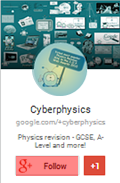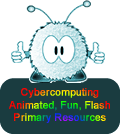How Science Works
Below is an extract from the government's site. It tells teachers what they have to teach their pupils at Key Stage 4. In 2014 these specifications may change but in practice the syllabus for GCSE has to cover all of these aspects. Therefore if you look at the up to date syllabus you will see all of the references to the current Government specifications.
Teachers have to keep this in mind when they are teaching students at Key Stage 3, so that they give the 'correct spin' on the lesson.
Teachers do not have to just impart knowledge - they have to impart it 'under the light of what they will be expected to do at GCSE'!
The AQA examination board has its own specific language for practical investigations and pupils are tested on knowing their specific terms in relation to practical experiments - good teachers start to introduce these terms from Y7 onwards and reinforce them whenever possible so that using them is second nature by KS4.
How science works from the Science key stage 4
specifications
1.1 Data, evidence, theories and explanations
Pupils should be taught:
- how scientific data can be collected and analysed
- how interpretation of data, using creative thought, provides evidence to test ideas and develop theories
- how explanations of many phenomena can be developed using scientific theories, models and ideas that there are some questions that science cannot currently answer, and some that science cannot address.
1.2 Practical and enquiry skills
Pupils should be taught to:
- plan to test a scientific idea,
- answer a scientific question, or
- solve a scientific problem
- collect data from primary or secondary sources, including using ICT sources and tools
- work accurately and safely, individually and with others, when collecting first-hand data
- evaluate methods of collection of data and consider their validity and reliability as evidence.
1.3 Communication skills
Pupils should be taught to:
- recall, analyse, interpret, apply and question scientific information or ideas use both qualitative and quantitative approaches
- present information, develop an argument and draw a conclusion, using scientific, technical and mathematical language, conventions and symbols and ICT tools.
1.4 Applications and implications of science
Pupils should be taught:
- about the use of contemporary scientific and technological developments and their benefits, drawbacks and risks
- to consider how and why decisions about science and technology are made, including those that raise ethical issues, and about the social, economic and environmental effects of such decisions
- how uncertainties in scientific knowledge and scientific ideas change over time and about the role of the scientific community in validating these changes.






